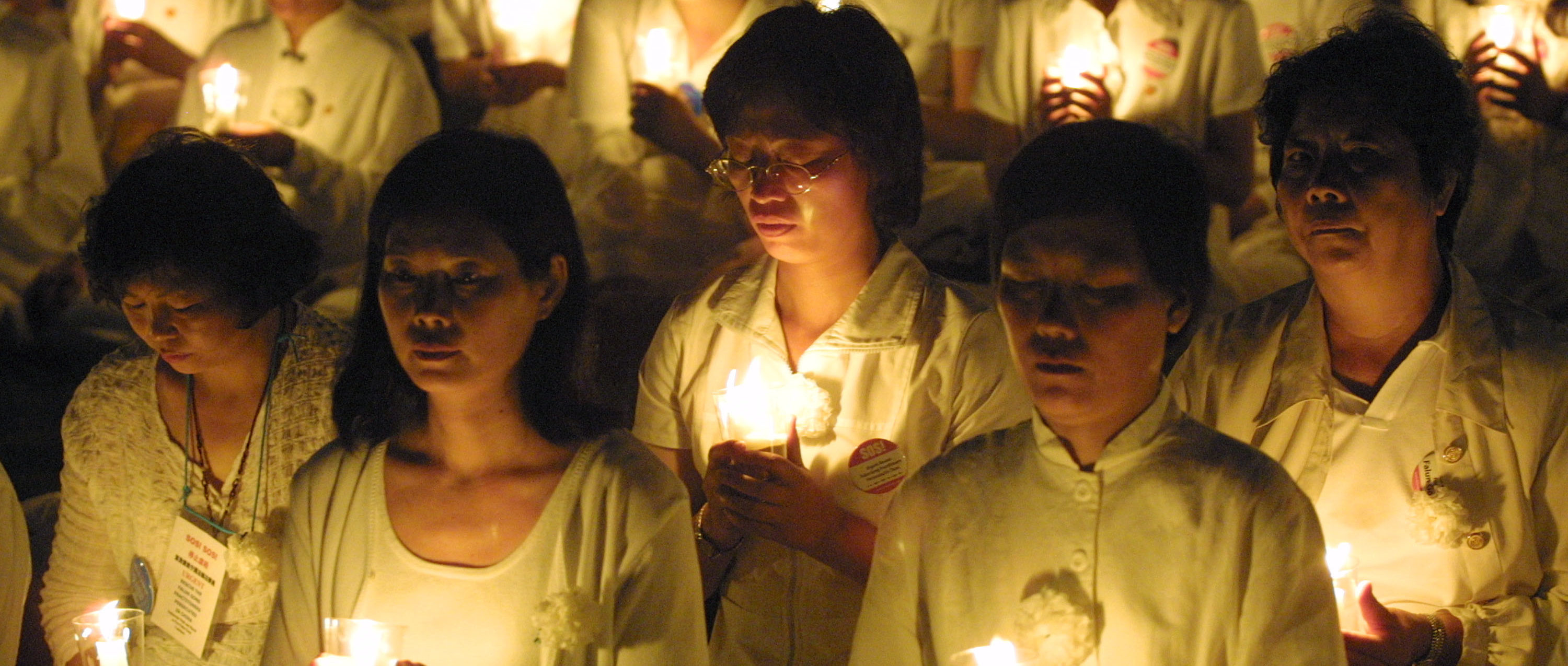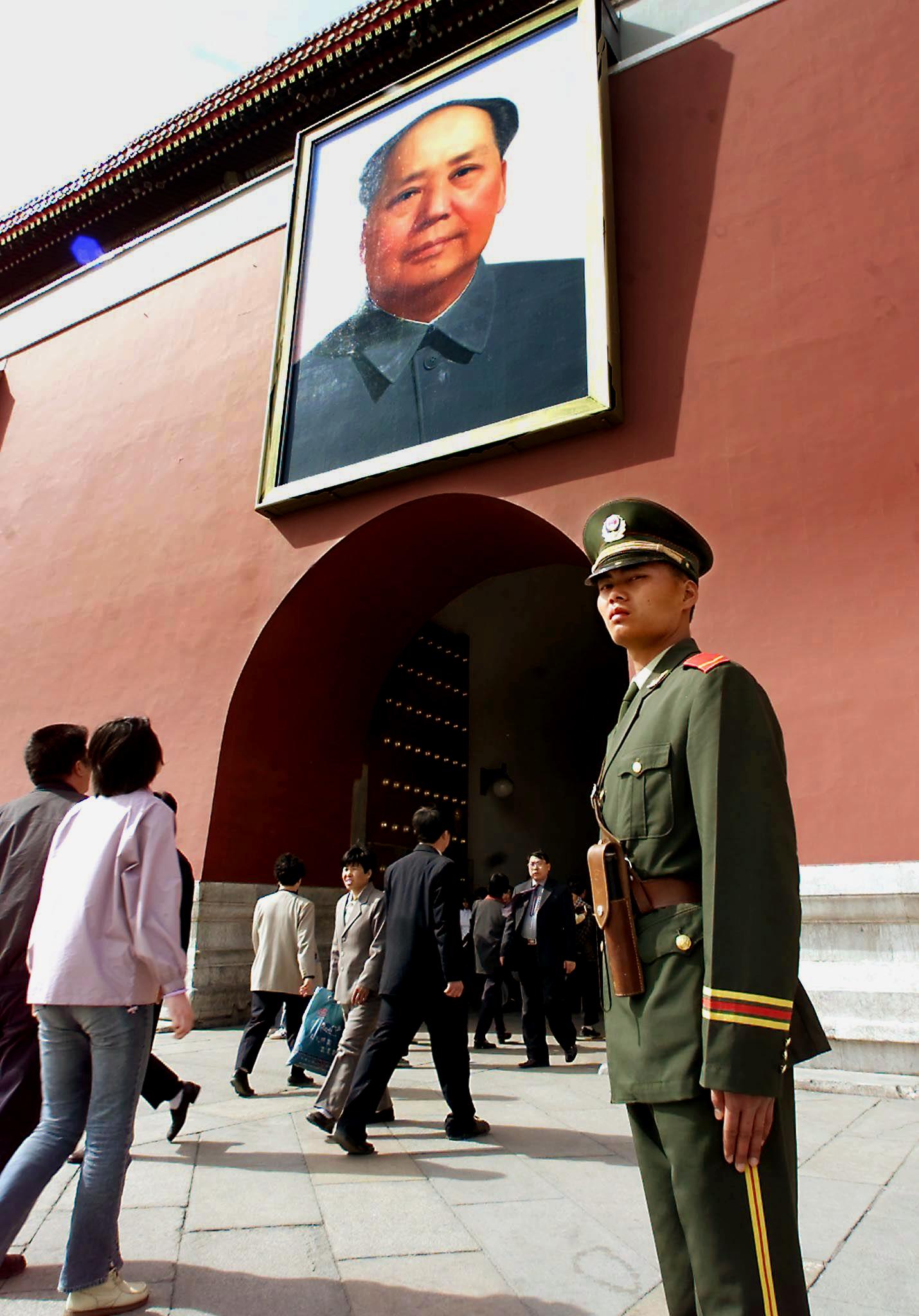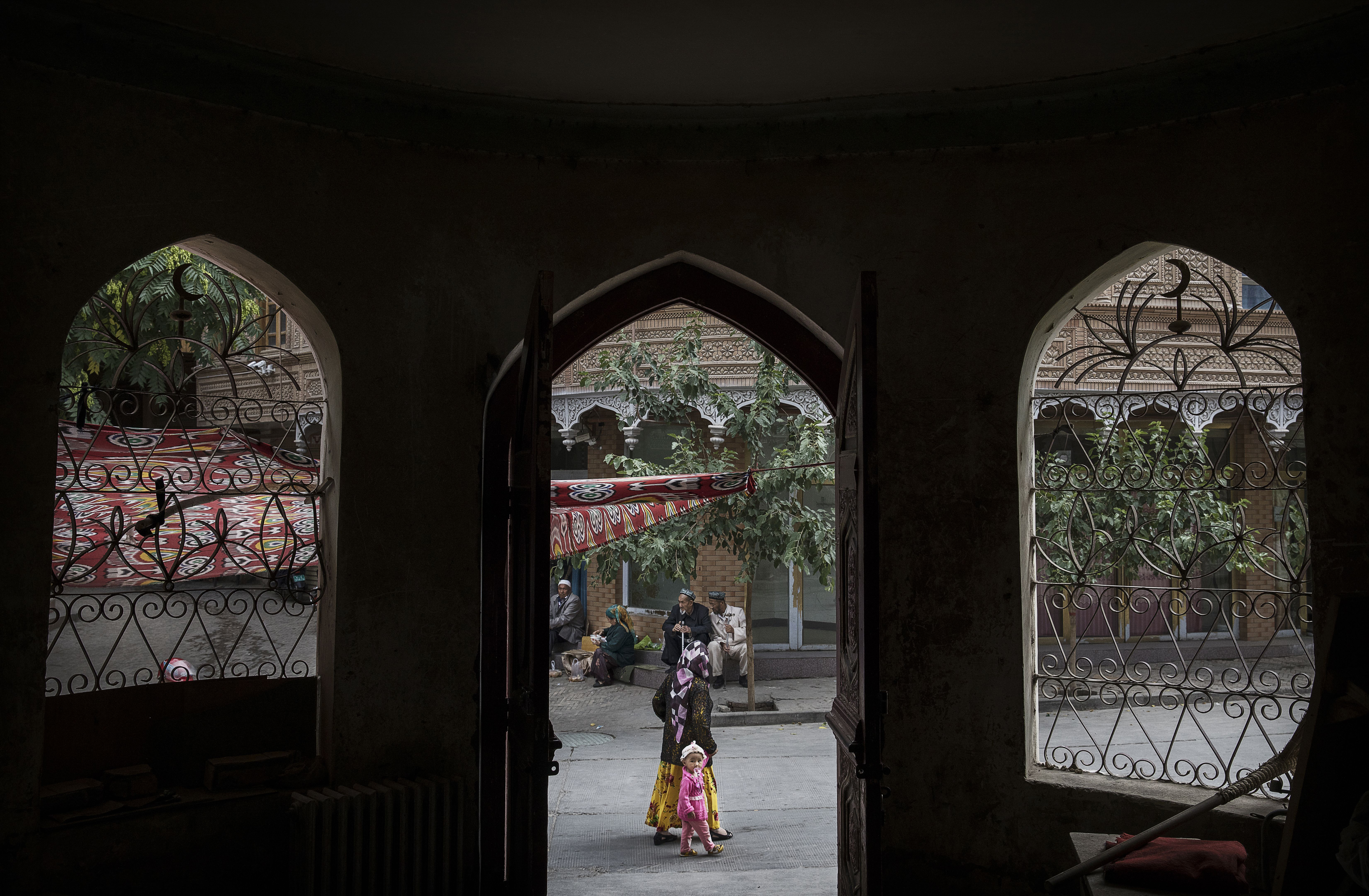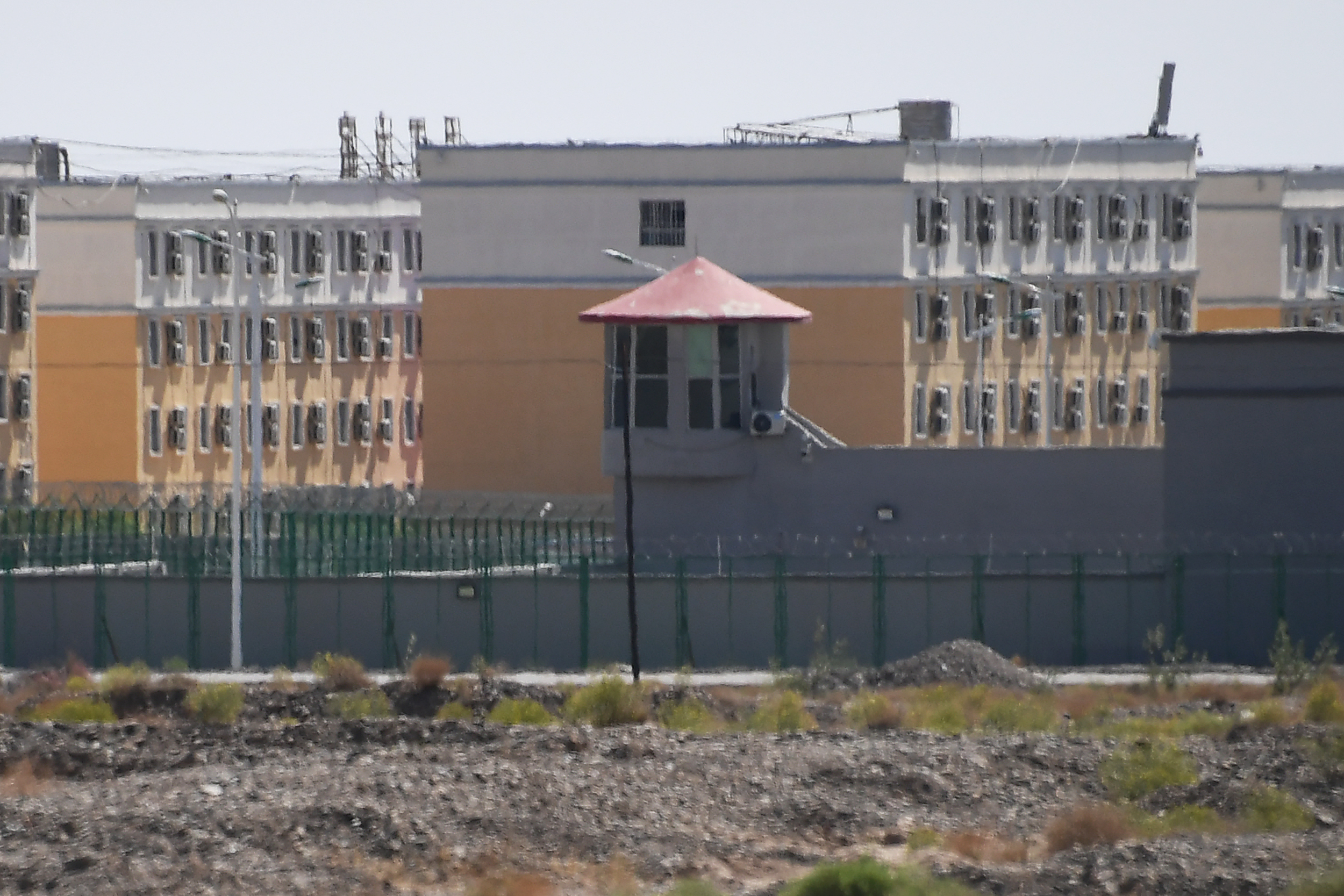
The Chinese Communist Party has waged a “total war” on faith and has sanctioned the U.S. officials who’ve brought attention to Beijing’s treatment of religious minorities, the U.S.’s ambassador of international religious freedom Sam Brownback told the Daily Caller.
Brownback details, in an interview with the Caller, the U.S.’s efforts to hold the Chinese government responsible for its alleged human rights abuses against Uighurs and other Muslim minorities in Xinjiang, a region that has become infamous after reports of forced labor, indoctrination, and torture in camps targeting the population.
Brownback, along with Republican Senators Marco Rubio and Ted Cruz, and Republican Rep. Chris Smith, were sanctioned by China earlier in July in response to the U.S.’s sanctions placed on Chinese officials over the treatment of religious minorities. Brownback emphasized the critical nature of the sanctions, which he describes as an aggressive response.

A policeman stands guard in front of the Tiananmen Gate with the portrait of Mao Zedong in Beijing 24 April 2001, as police tightened security around Tiananmen Square to prevent followers of the outlawed Falungong spiritual group from protesting and possible self-immolation on the eve of the anniversary of the 25 April, 1999 demonstration. (GOH CHAI HIN/AFP via Getty Images)
“We’re responding aggressively, more aggressively and clearly than any other nation in the world,” he tells the Caller. “We put sanctions on politburo members, which is a very strong statement, when we sanctioned Chen Quanguo.”
Quanguo is the party secretary of the Xinjiang Uighur Autonomous Region (XUAR), and has reportedly gained a reputation as an ethnic policy innovator by pioneering a range of methods for securing CCP control over ethnic minorities in the region, according to the Jamestown Foundation. Other targets of the sanctions included Xinjiang official Zhu Hailun and police boss Wang Mingshan, along with their immediate families.
The Chinese government has allegedly created a high-tech surveillance state using facial recognition and artificial intelligence to monitor religious minorities, who often have to operate in underground worship groups to evade the government’s strict controls, which include replacing images of Jesus Christ or the Virgin Mary with pictures of President Xi Jinping.
Uighur Muslims have also been detained in more than 1,300 concentration camps in Xinjiang for wearing long beards or refusing alcohol. The camps have transitioned from reeducation to forced labor, with reports of torture and rape.
All religions — including Christianity, Islam, and Tibetan Buddhism — have been targeted in government campaigns to “sinicize” China.
“They’re trying to either eliminate religion or co-opt it to have it run by the communist party, one of the two,” Brownback said. “They either want to do away with it or they want to run it.”

An ethnic Uyghur woman walks by the closed Islamic school on July 1, 2017 in the old town of Kashgar, in the far western Xinjiang province, China. Kashgar has long been considered the cultural heart of Xinjiang for the province’s nearly 10 million Muslim Uyghurs. (Photo by Kevin Frayer/Getty Images)
The U.S. has cracked down on Chinese government influence within the country, an effort reflected by the frequent investigations into university researchers and professors who have lied about ties with Beijing while accepting federal funding. Chinese tech companies like TikTok and Huawei have also faced scrutiny by lawmakers concerned about possible national security threats.
While there were “episodic and regional” attacks on the faithful in China before President Xi Jinping, Brownback says that under his authority, the attacks have become more institutionalized.
“Under Xi, it’s gone national, hardline, and high tech,” he says. “I think it’s a sign of weakness. The thought that in 2020 you’d have 1 million Muslims in concentration camps primarily because of their faith is unthinkable, and by a global power. And yet that’s the situation we have today.”

This photo taken on June 2, 2019 shows buildings at the Artux City Vocational Skills Education Training Service Center, believed to be a re-education camp where mostly Muslim ethnic minorities are detained, north of Kashgar in China’s northwestern Xinjiang region. (GREG BAKER/AFP via Getty Images)
The human rights abuses paired with other sources of tensions — including the recent security law implemented by China in Hong Kong — has escalated the relationship between the two global superpowers
“We’ve blocked products from certain companies, we’ve sanctioned tech companies. Tech was used in digital oppression, and we’ve responded aggressively and are building alliances to bring other nations along on the sanctioning of China for religious and human rights abuses in Xinjiang but also in Tibet and against Christians and Falun Gong members,” he adds.
Brownback also hinted at the potential for much more legislation to follow on the subject, specifically targeting parts of supply chains that may depend on forced labor.
More than 180 human rights groups and labor unions have called on major apparel brands to end the use of forced labor in Xinjiang, where they alleged many global brands, ranging from Nike to Victoria’s Secret, have ties with suppliers implicated in forced labor. Several of the brands denied using forced labor at any point in their supply chain in statements to the Caller. (RELATED: More Than 180 Human Rights Groups Call On Major Apparel Brands To End The Use Of Forced Uighur Labor, An Accusation They Deny)
“This is a total war on faith the Communist Party has going, but it’s a war they will not win.”
